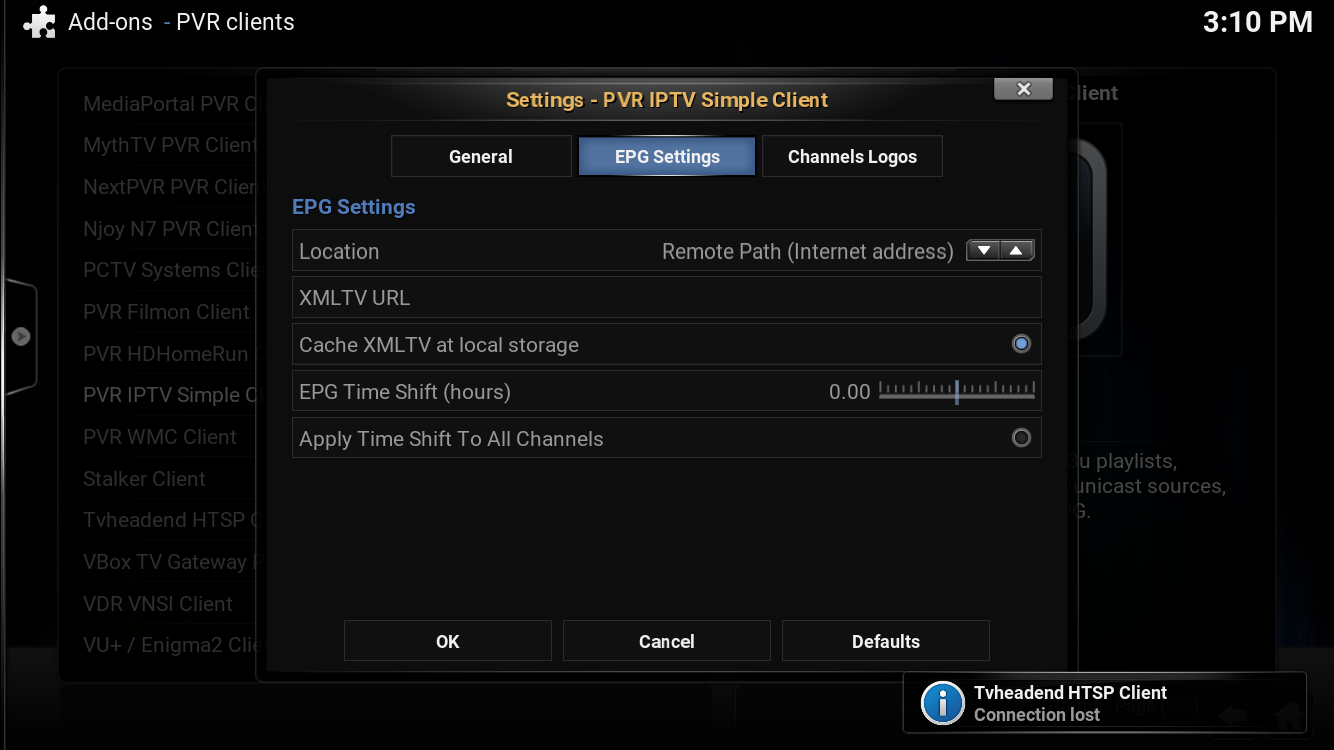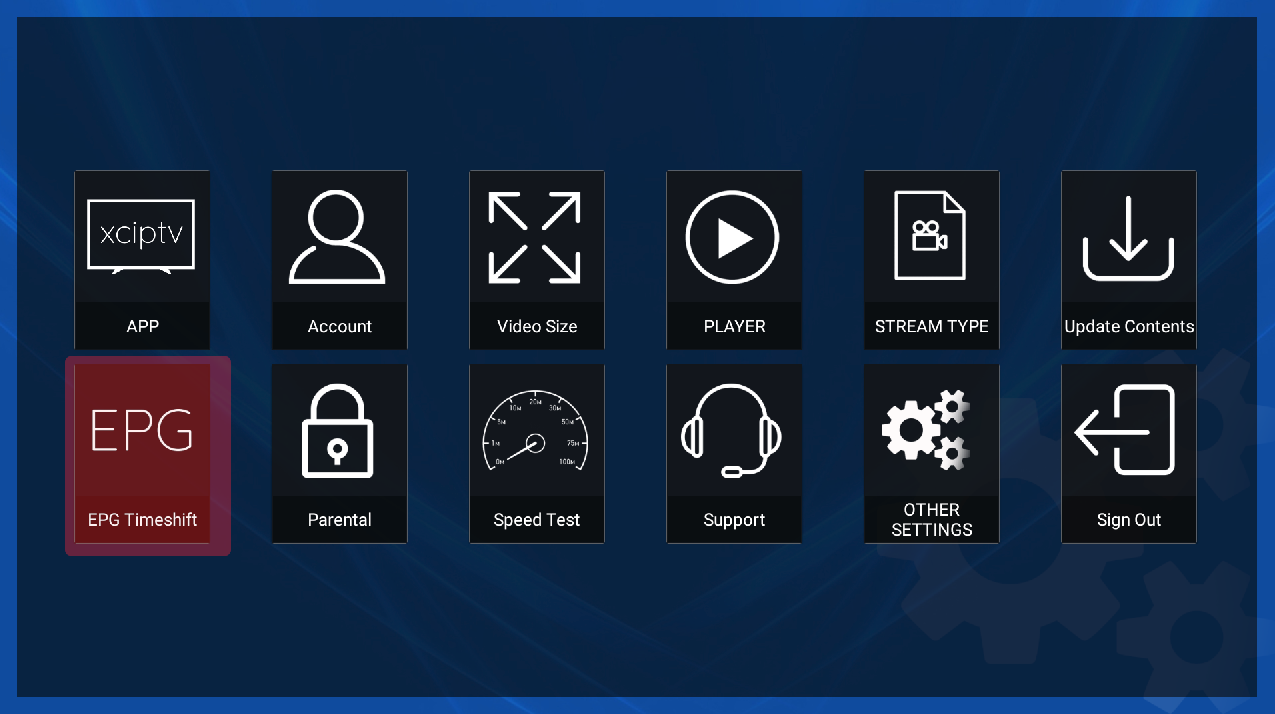Introduction:
The EPG time shift error is a common issue in IPTV services that disrupts the user experience by causing the times displayed in the Electronic Program Guide (EPG) to be out of sync with the actual broadcast times. This issue makes it difficult for viewers to follow schedules, watch their favorite shows, and record content accurately. In this article, we’ll explore the causes of EPG time shift errors, their impact on IPTV users, and the solutions to prevent or fix them, helping providers and users maintain a seamless viewing experience.
What is an EPG Time Shift Error?
The EPG time shift error refers to a situation where the times shown on the Electronic Program Guide do not align with the actual broadcast times of the programs. This means that users may find that the program they are trying to watch either starts too early or too late, making it difficult to follow along or record content as planned.
For instance, an IPTV service may display a program to start at 8:00 PM, but the actual broadcast may start at 8:05 PM or 7:55 PM, causing scheduling conflicts. This can happen across different channels, creating significant inconvenience for viewers who rely on the EPG to manage their TV watching schedule.
Causes of EPG Time Shift Error
Several factors can contribute to EPG time shift errors, ranging from technical issues within the IPTV system to external factors affecting data delivery. Below are some of the most common causes of EPG time shift errors.
Incorrect Time Zone Settings
One of the most frequent causes of EPG time shift errors is incorrect time zone settings on the IPTV system. If the server or client device is configured to an incorrect time zone, the EPG data may appear with incorrect start and end times. This is especially common in global IPTV services that span multiple regions with different time zones. Learn more about time zones and how they work.
EPG Data Source Issues
IPTV providers often obtain EPG data from external sources like satellite providers or third-party services. If these data providers experience issues with the accuracy or transmission of their data, it can lead to discrepancies in the guide’s time listings. This could also be a result of incorrect metadata being sent by the EPG provider, which gets reflected in the user’s IPTV system. Check out more on the EPG standardization from CableLabs.
Server Synchronization Problems
IPTV services rely on server infrastructure to sync broadcast times and EPG data. If the server experiences synchronization issues due to network latency, hardware problems, or software bugs, the times displayed in the EPG may be delayed or incorrect. Learn more about network synchronization and its importance.
Incorrect or Delayed Signal Transmission
In some cases, the IPTV signals themselves may be delayed. Network congestion or issues with signal routing can cause a delay in the program feed, leading to discrepancies between the scheduled and actual broadcast times. This delay could be compounded by issues with the EPG data being updated. For information on signal transmission and delays, refer to this article on broadcasting technology.
Daylight Saving Time (DST) Adjustments
Another potential cause of EPG time shift errors is the handling (or mishandling) of daylight saving time (DST) changes. As regions move into and out of DST, the timing of broadcasts changes, but if the IPTV system does not update correctly, the times in the EPG may be skewed by an hour, leading to scheduling issues. For a deeper understanding of DST, refer to DST changes globally.
Impact of EPG Time Shift Error
The consequences of an EPG time shift error can be quite frustrating for IPTV users. These issues can affect both casual viewers and those who rely on IPTV for more structured, time-sensitive entertainment. Below are some key impacts of the EPG time shift error.
Missed Content
When the program starts earlier or later than expected, viewers may miss part of the show or may tune in too late. This can be especially troublesome for those who like to watch live sports, news, or events that follow a strict schedule.
Recording Failures
One of the primary uses of an EPG is to set up recordings for future broadcasts. A time shift error can lead to the wrong show being recorded or a show not being recorded at all. This is particularly problematic for viewers who want to record content to watch later. Learn more about IPTV recording setups.
Viewer Confusion
Frequent time discrepancies can create confusion for users, causing them to lose trust in the accuracy of the EPG. This can lead to frustration and a negative experience with the IPTV service, ultimately reducing customer satisfaction.
Loss of Reputation for IPTV Providers
IPTV service providers depend on user satisfaction and engagement. Continuous EPG errors can tarnish a provider’s reputation, especially if customers cannot rely on the guide for accurate scheduling. This may lead to an increase in support queries, complaints, and even customer churn. Learn more about IPTV customer satisfaction.
Solutions to EPG Time Shift Error
There are several ways to mitigate or resolve EPG time shift errors. Both users and service providers can take steps to correct the issue. Let’s break down these solutions:
Correct Time Zone Settings
Ensure that both the IPTV server and user devices have the correct time zone settings. Providers should also confirm that their servers are synchronizing with the appropriate global time standards, such as UTC (Coordinated Universal Time).
EPG Data Provider Validation
IPTV service providers should regularly verify the accuracy of their EPG data sources. This can involve cross-checking program schedules, collaborating with multiple data providers, and ensuring timely updates to the guide.
Network and Server Optimization
IPTV providers should ensure their servers and infrastructure are optimized for performance. This includes reducing network latency, ensuring server synchronization, and performing regular maintenance on their hardware and software. Learn more about server optimization.
Daylight Saving Time Handling
Ensure that the IPTV system handles daylight saving time (DST) changes correctly. This may involve incorporating an automatic adjustment mechanism or manual checks during DST transitions to prevent scheduling errors.
Software Updates and Bug Fixes
Keeping the IPTV system and its EPG software updated is critical. Bug fixes and performance updates often address time-related synchronization issues that can impact the EPG. Regularly updating the system ensures that known errors are corrected promptly.
User Education
Educating users about how to adjust their time zone settings, deal with common EPG issues, or report errors can also reduce frustration. Providing clear instructions for users can help resolve some minor discrepancies on the user’s end. For user education, see this guide to using EPG.
Conclusion
The EPG time shift error is a frustrating but common issue faced by many IPTV users. By understanding its causes and impact, IPTV providers and users can take the necessary steps to resolve it. From checking time zone settings to improving server synchronization, there are multiple strategies to mitigate these errors. By focusing on accuracy, communication, and regular maintenance, IPTV providers can improve the user experience, maintain their reputation, and reduce the likelihood of EPG time shift errors disrupting their service.
Other topics related to this article:
TiviMate IPTV Player: Adjusting EPG Time Offset



Leave a Reply